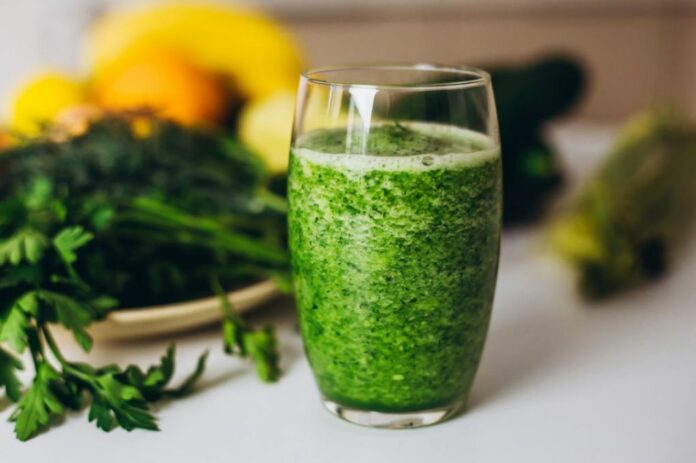New Study Reveals Worst and Best Antioxidant Liquids for Your Spinach Smoothie
Diverse commercial products yield varying outcomes concerning the release of the antioxidant lutein in spinach-based smoothies.
A study conducted by scientists at Linköping University, Sweden, analyzed 14 prevalent dairy and plant-based liquids, discovering that a mere four of them facilitated increased lutein release. Interestingly, compared to water, some beverages negatively impacted the spinach smoothie’s lutein content.
It is widely known that spinach offers numerous health benefits. Among the components found in spinach and kale is lutein, a substance with notable advantages. A wealth of experimental research has demonstrated lutein’s ability to inhibit processes associated with inflammation. Furthermore, a growing body of evidence suggests that persistent low-grade inflammation is a significant contributor to the development of cardiovascular diseases.
“Lutein is a bio-active compound,” explains lead author Rosanna Chung.
“We have studied lutein in a similar way to studying a pharmaceutical drug.
In this new study, published in Nutrients, they “looked at lutein liberation from fresh spinach.”
Given that our bodies are unable to synthesize lutein, the investigators of the study aimed to determine the most effective way to maximize lutein consumption from food sources. The research team previously established that heating spinach during preparation degrades a portion of its lutein content, while blending it into a smoothie enhances the bioavailability of this nutrient.
The choice of liquid incorporated into the smoothie also plays a role in the lutein content. Since lutein is soluble in fat but not in water, it requires gastric secretions and/or other dietary elements to be released from plant-based sources and absorbed by our digestive system. The scientists hypothesized that certain constituents in our diet, including fat, carbohydrates, proteins, and fibers, could influence the bioavailability of lutein. Additionally, the impact of products like yogurt may vary due to the fermentation process. However, commonly available products are seldom the focus of scientific research.
The team investigated the impact of a range of commercially available food products on the release of lutein in smoothies, examining both dairy and plant-derived liquids.
In the experiment, spinach was combined with different products and subjected to a process that mimicked human digestion within the gastrointestinal system by introducing digestive enzymes. Subsequently, the lutein levels accessible for bodily absorption in smoothies containing various products were compared to those in smoothies prepared solely with water.
“We could see that only 4 of the 14 examined products increased the liberation of lutein from spinach compared to water,” adds the lead author.
“Cow’s milk with a high fat content as well as coconut milk improved lutein liberation.
“Yoghurt, however, which is regarded as comparable to cow’s milk and is often used in cafés and similar, did not show particularly good results.”
The limited ability of yogurt to release lutein could potentially be linked to the fermentation process. Furthermore, plant-based beverages, typically derived from nuts, legumes, or oats, exhibited noticeably varying outcomes.
“Plant-based liquids have become increasingly common in smoothies,” adds Jan Neelissen, one of the authors.
They “saw that soymilk was actually less effective than water when it comes to liberating lutein in spinach smoothies.
“In other words, soymilk had a negative effect on lutein liberation in our study.”
In contrast to water, the remaining plant-based products examined in the study did not exhibit any significant impact on lutein release. As a general guideline, it is advisable to consume smoothies promptly, as lutein tends to degrade rapidly.
While the study’s findings provide insight into the amount of lutein potentially available for absorption by the body, they do not offer definitive information on actual lutein absorption rates. As a result, the research team plans to undertake a human trial to evaluate lutein absorption levels from smoothies prepared with various ingredients.
Image Credit: Getty
